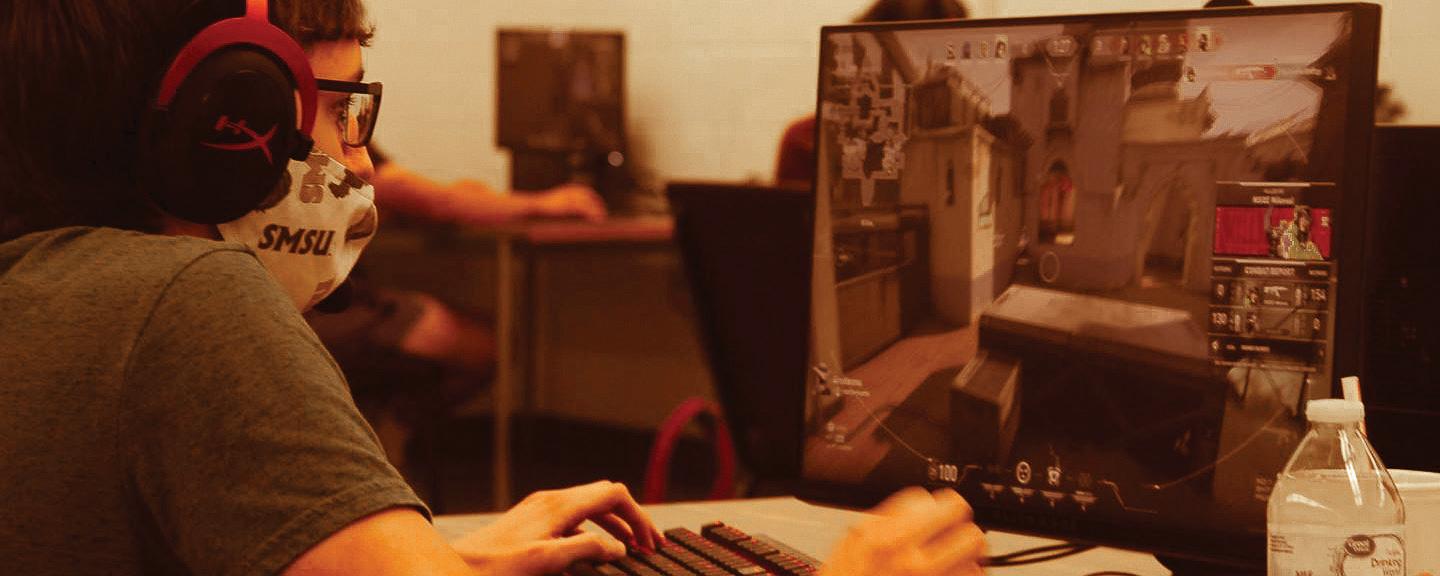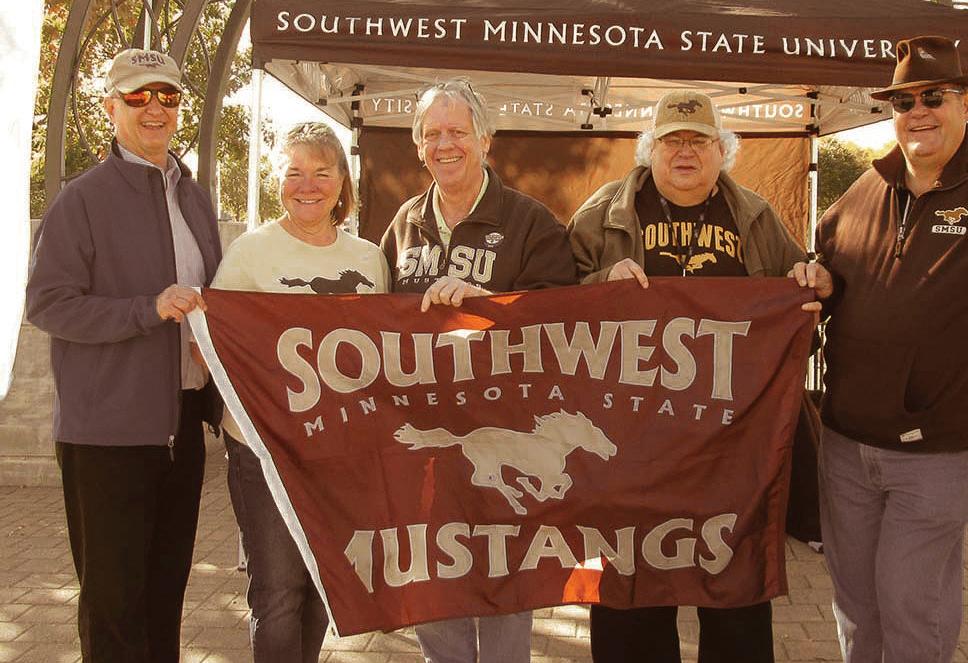
3 minute read
Mustang Masks Project
[ around campus ] The Mustang Masks Project The Ripple Effect of a Faculty Project Impacts Students Beyond the Mask
The Mustang Masks project garnered a lot of positive publicity for SMSU, and resulted in a generous donation that will assist in the growth of the Mustang Pathway program.
Mustang Masks was a summer initiative where a group of SMSU current and past employees banded together to sew 400 masks for new students who arrived on campus for Move-In Day on Aug. 20, 2020.
The project was spearheaded by Associate Professor of Communication Studies Mark Fokken, who contacted the Communications and Marketing office to get the ball rolling on funding and branding. The SMSU Mustang pattern was designed and the custom fabric and supplies were funded by the SMSU Foundation. Fokken enlisted the help of seven others to make the masks, pictured above.
On a story tip from the SMSU Communications and Marketing office, John Lauritsen of WCCO Television came to campus on July 23 and recorded a segment on the Mustang Masks project. (View the story here: bit.ly/smsumaskstory).
An alum saw the story on television and it triggered fond memories of their time at the University. They contacted the SMSU Foundation and had a conversation with Interim Co-Executive Director of Advancement and Foundation Stacy Frost. As they talked, the alum relived some of their positive experiences at SMSU, and expressed a desire to give back to the University. The anonymous donor pledged $50,000 to the Foundation, which resulted in support of the new Mustang Pathway program.
The Mustang Pathway program is an initiative of President Kumara Jayasuriya. It bridges the education gap and provides access to students who may not have the opportunity to go to college otherwise.
Students accepted into the program are current high school seniors who commit to a five-week summer program that provides them with the

Mask makers left to right: Linda Nelson, Liz Roy, Wanda Paluch, LeAnne Syring, Mark Fokken, Sheila Tabaka, Kris Cleveland, and John Nelson.

tools and strategies needed to bridge academic and social gaps while acclimating them to their new academic environment.
The students take courses in reading, global experience, English, and a math workshop. The 5 credits are free, and participants are evaluated throughout to gauge their progress. Those completing the program successfully then enroll as freshmen.
“We had 17 participate in the first program,” said Erin Kline, Associate Director of the Mustang Pathway program and Office of Diversity and Inclusion.
Once admitted, they become part of the Pathway Scholars, a yearlong cohort which includes a series of courses they take as a group, as well as others they select in an area of interest, or part of their major. The students also reside in the residence hall Buckingham, a Living & Learning Community, where programming is in place to assist them in realizing academic and personal success. President Jayasuriya said he’d like Mustang Pathway to grow next year. Kline recruits all areas of the state, talking to high school counselors, principals and superintendents. “The bottom line is access for these students. It offers students an access point, an opportunity they would not have considered otherwise,” she said. “The mission and goal of the Mustang Pathway program align with the Minnesota State 20-30 initiative to ‘eliminate the educational equity gaps for first-generation students, low-income students, indigenous students and students of color.’ Mustang Pathway is a launching point for students, but they are the ones putting in the time and doing all the work,” she said. Frost said the gift will help many students in the years to come. “The gift is about people helping people,” she said. “It’s an example of one person’s dynamic commitment, which has led to much, much Dr. Erin Kline more.”







